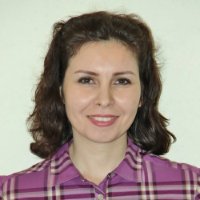Michael Waring, Ph.D., Director
 Dr. Michael Waring is an assistant professor in the Department of Civil, Architectural and Environmental Engineering (CAEE) at Drexel University’s College of Engineering. Michael researches how to improve indoor air and environmental quality, as well building sustainability. Much of his focus is on indoor chemical reactions between oxidants and reactive organic gases that generate aerosols. For this research effort, he has been awarded a NSF CAREER Award and an ASRHAE New Investigator Award and Willis H. Carrier Award. He is also interested in novel ventilation strategies that improve IAQ for the lowest energy cost, as well as how indoor microbes respond to building operational states. He teaches courses on IAQ, building sustainability and HVAC systems, and fluid mechanics.
Dr. Michael Waring is an assistant professor in the Department of Civil, Architectural and Environmental Engineering (CAEE) at Drexel University’s College of Engineering. Michael researches how to improve indoor air and environmental quality, as well building sustainability. Much of his focus is on indoor chemical reactions between oxidants and reactive organic gases that generate aerosols. For this research effort, he has been awarded a NSF CAREER Award and an ASRHAE New Investigator Award and Willis H. Carrier Award. He is also interested in novel ventilation strategies that improve IAQ for the lowest energy cost, as well as how indoor microbes respond to building operational states. He teaches courses on IAQ, building sustainability and HVAC systems, and fluid mechanics.
Michael has been at Drexel since receiving his Ph.D. in Civil Engineering from the University of Texas at Austin in 2009. He also received a M.S.E. in Environmental Engineering in 2006, a B.S.E in Architectural Engineering in 2005, and a B.A. in English (special honors) and Economics in 2000, all from UT-Austin. While a graduate student, Michael was in the first cohort of the NSF IGERT program in Indoor Environmental Science and Engineering and received the Harrington Dissertation Fellowship, which is the most prestigious fellowship awarded to a Ph.D. student at UT-Austin.
He is an active member of the International Society for Indoor Air Quality and Climate (ISIAQ) and ASHRAE, for which he is the Chair of the Research Subcommittee for Technical Committee 2.4: Particulate Air Contaminants And Particulate Contaminant Removal Equipment. Michael currently advises one post-doctoral researcher and six Ph.D. students. He is a founding co-leader of the Drexel Building Science and Engineering Group (BSEG) with Drs. Jin Wen and Patrick Gurian, and he co-runs the Drexel Air Resources Research Lab (DARRL) with Dr. Peter DeCarlo. He also collaborates with many other researchers throughout the U.S. and the world.
Michal P. Spilak, Ph.D., Post-Doctoral Researcher
 Dr. Michal Spilak is a Post-Doctoral Research Fellow in the Indoor Environment Research Group in the Department of Civil, Architectural and Environmental Engineering (CAEE) at Drexel University’s College of Engineering. His research focuses on human exposure to particulate matter and bioaerosol indoors, particle resuspension in indoor environment, and transport of particulate indoor air pollutants. His current research at Drexel CAEE involves assessment of residential buildings damaged by the Superstorm Sandy and to determine patterns for how building conditions/characteristics and microbial community composition are associated.
Dr. Michal Spilak is a Post-Doctoral Research Fellow in the Indoor Environment Research Group in the Department of Civil, Architectural and Environmental Engineering (CAEE) at Drexel University’s College of Engineering. His research focuses on human exposure to particulate matter and bioaerosol indoors, particle resuspension in indoor environment, and transport of particulate indoor air pollutants. His current research at Drexel CAEE involves assessment of residential buildings damaged by the Superstorm Sandy and to determine patterns for how building conditions/characteristics and microbial community composition are associated.
Michal received his Ph.D. degree at Danish Building Research Institute (SBi) in 2014 and graduated at the Czech Technical University in Prague (Mechanical Engineering). His Ph.D. dissertation investigated particle resuspension and human exposure to pollutants in the sleep and indoor environment. In 2012 he received P.O. Fanger Foundation’s Award for the best Ph.D. project in the field of Indoor Environment. His research at SBi also included development of mechanical balanced ventilation system for houses occupied by asthmatic children, conducting intervention studies, and moisture measurements of building constructions.
Somayeh Youssefi, Ph.D. Candidate
 Somayeh Youssefi is a Ph.D. candidate in Environmental Engineering. Her research focuses on secondary organic aerosol (SOA) formation from the ozonolysis of terpenes, which are widely used in consumer products. More specifically, she studies the effect of the air exchange rate on the mass, number, and size of the produced aerosols, as well as the effects of mechanisms such as partitioning, deposition, coagulation, and surface deposition on the SOA size distribution. Her research incorporates modeling and statistical analysis, and she has developed an accurate model to predict the mass concentration of produced SOA as a result of ozone and terpene reaction in indoor settings. Currently, she is working on a model that describes the size and the number of produced SOA resulting from the transient reaction of ozone and limonene, which is the most used terpene in consumer products.
Somayeh Youssefi is a Ph.D. candidate in Environmental Engineering. Her research focuses on secondary organic aerosol (SOA) formation from the ozonolysis of terpenes, which are widely used in consumer products. More specifically, she studies the effect of the air exchange rate on the mass, number, and size of the produced aerosols, as well as the effects of mechanisms such as partitioning, deposition, coagulation, and surface deposition on the SOA size distribution. Her research incorporates modeling and statistical analysis, and she has developed an accurate model to predict the mass concentration of produced SOA as a result of ozone and terpene reaction in indoor settings. Currently, she is working on a model that describes the size and the number of produced SOA resulting from the transient reaction of ozone and limonene, which is the most used terpene in consumer products.
Somayeh got her B.S. and M.S. in Chemical Engineering from Tehran University, Iran. She has also four years of experience as a process engineer in oil and gas industries.
Adams Rackes, Ph.D. Candidate
 Adams Rackes is a Ph.D. candidate in Architectural Engineering who investigates computational tools for improving the design and operation of sustainable buildings. His current research focuses on using machine learning and optimization techniques to enable smarter ventilation control in commercial buildings, in order to both save energy and improve indoor air quality. This work combines many of his interests, including energy efficiency of buildings, indoor air processes and impacts, simulation and modeling, building mechanical systems and automation, and optimal estimation and control. He has also worked on designing intelligent networks for indoor air monitoring with low-cost sensors; assessing ventilation strategy impacts on health, economic, and energy endpoints; and statistically characterizing physical, thermal, and indoor air parameters in the built environment.
Adams Rackes is a Ph.D. candidate in Architectural Engineering who investigates computational tools for improving the design and operation of sustainable buildings. His current research focuses on using machine learning and optimization techniques to enable smarter ventilation control in commercial buildings, in order to both save energy and improve indoor air quality. This work combines many of his interests, including energy efficiency of buildings, indoor air processes and impacts, simulation and modeling, building mechanical systems and automation, and optimal estimation and control. He has also worked on designing intelligent networks for indoor air monitoring with low-cost sensors; assessing ventilation strategy impacts on health, economic, and energy endpoints; and statistically characterizing physical, thermal, and indoor air parameters in the built environment.
Adams is 2014 NSF Graduate Research Fellow and 2014 Fulbright Scholarship recipient, for which he will be studying in Brazil in 2015. He received a B.S. in Architectural Engineering from Drexel in June 2012 and is an Engineer-in-Training. He also holds a B.A. in History and Literature from Harvard University, and formerly worked as a welder. He lives in Philadelphia with his wife and son.
Chunyi Wang, Ph.D. Candidate
 Chunyi Wang is a Ph.D candidate in Environmental Engineering at Drexel University. His research focus is IAQ, mainly on the formation of secondary organic aerosol (SOA) indoors. He previously experimentally investigated the SOA derived from surface reactions of ozone with sorbed squalene, which is a dominant compound in human skin. Now, he is developing an indoor thermodynamic organic aerosol partitioning model to simulate room SOA loadings and organic compound distributions at different key locations within HVAC systems and occupied spaces.
Chunyi Wang is a Ph.D candidate in Environmental Engineering at Drexel University. His research focus is IAQ, mainly on the formation of secondary organic aerosol (SOA) indoors. He previously experimentally investigated the SOA derived from surface reactions of ozone with sorbed squalene, which is a dominant compound in human skin. Now, he is developing an indoor thermodynamic organic aerosol partitioning model to simulate room SOA loadings and organic compound distributions at different key locations within HVAC systems and occupied spaces.
Before returning to the academic world, he worked in water treatment field as an engineer for three years in Shanghai, and he was involved in wastewater plant design, construction, and operation. Chunyi received his B.S. degree in Environmental Engineering from Tongji University in 2007.
Sheng Wang, Ph.D. Student
 Sheng Wang is a Ph.D. student in the Department of Civil, Architectural and Environmental Engineering at Drexel University. His current research focuses on measuring impacts of ventilation and filtration in a real office building; for this work, he is developing an automated sampling system to measure pollutants in real-time from different airflows in the HVAC system for the building. By integrating pollutant and HVAC energy data, this research investigates the ventilation impact both on indoor air quality and energy consumption, with the eventual goal of helping to realize optimal control strategies for buildings.
Sheng Wang is a Ph.D. student in the Department of Civil, Architectural and Environmental Engineering at Drexel University. His current research focuses on measuring impacts of ventilation and filtration in a real office building; for this work, he is developing an automated sampling system to measure pollutants in real-time from different airflows in the HVAC system for the building. By integrating pollutant and HVAC energy data, this research investigates the ventilation impact both on indoor air quality and energy consumption, with the eventual goal of helping to realize optimal control strategies for buildings.
Sheng received a B.S. in Environmental Science from Renmin University of China in June 2009. He lives in Philadelphia and commutes to Baltimore, where his wife works, weekly.
Yanan Yang, Ph.D. Student
 Yanan Yang is a Ph.D. student in Environmental Engineering at Drexel University. Her research focuses on secondary organic aerosol (SOA) formation from ozonlysis of α-terpineol, a common reactive organic gas (ROG) in many indoor cleaners and consumer products. Her future research will involve SOA formation investigations with some other ROGs indoors that have not yet been studied in the literature. Her former research focused on the elimination of indoor air pollutants by photocatalysis technology, as well as the health risk of intermediates formed by those reactions, using gas chromatographic-flame ionization detection (GC-FID) and proton transfer reaction-mass spectrometry (PTR-MS).
Yanan Yang is a Ph.D. student in Environmental Engineering at Drexel University. Her research focuses on secondary organic aerosol (SOA) formation from ozonlysis of α-terpineol, a common reactive organic gas (ROG) in many indoor cleaners and consumer products. Her future research will involve SOA formation investigations with some other ROGs indoors that have not yet been studied in the literature. Her former research focused on the elimination of indoor air pollutants by photocatalysis technology, as well as the health risk of intermediates formed by those reactions, using gas chromatographic-flame ionization detection (GC-FID) and proton transfer reaction-mass spectrometry (PTR-MS).
Yanan received a M.S. degree in Environmental Engineering in 2013 from Zhejiang University, China. Immediately following that, she joined the Indoor Environment Research Group at Drexel, and she is enjoying Philadelphia life.
Prateek Pant, Ph.D. Student
 Bio coming soon.
Bio coming soon.
